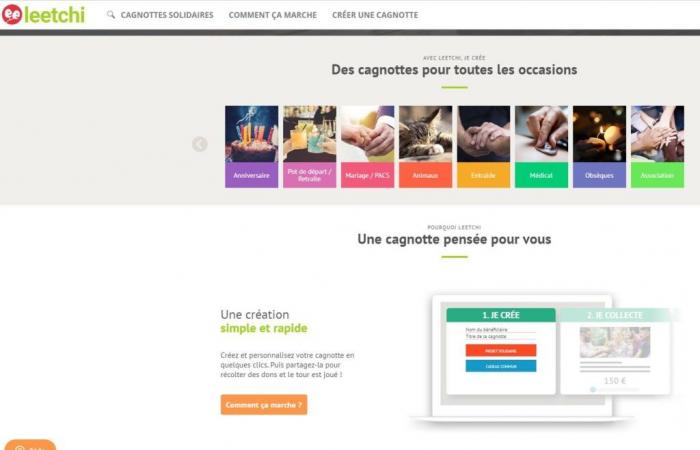In recent years, online prize pools have established themselves as a very popular way to raise funds to give gifts to loved ones, finance a joint project or support charitable causes. But before creating a prize pool or participating in it, it is important to take a certain number of precautions. Because not all platforms apply the same pricing conditions. And some calls for donations can even hide scams.
If you want to create a fundraiser to celebrate a loved one, the first golden rule is to check the conditions put in place by the platforms. Leetchi, Lydia, Le Pot Commun, Paypal or CotizUp. Many sites aim to create prize pools. But they are not free. These services generally charge a fee – between 1.9 and 6% – when transferring the collected money in a bank account. Some also do it on participations. Others charge no fees, provided that the prize pool is used in a partner brand. It is therefore important to compare platform offers to find the one that best suits your needs.
If you are in the situation where you are asked to contribute to a contribution for a colleague, some precautions are also necessary. It is first necessary to check that the link we shared with you is legitimate. To know if you are not facing a phishing attempt, make sure that the sender is a trusted person and that the URL refers to an official fundraising platform.
Once on the prize pool registration form, limit as much as possible the personal information you record on the site to participate. No need to enter a telephone number or address if a simple email will suffice. When paying, check that the site complies with security standards and has an HTTPS address.
Finally, avoid saving your banking information on the platform so as not to have to re-enter it later. It is better to inform them each time rather than risking a possible data leak one day. A good tip is to use a single-use dematerialized bank card, the information of which will only be used for this operation. Check with your bank to find out the terms and conditions.
How to spot fraudulent prize pools
Beyond fundraising with friends or colleagues, you should be extra vigilant if you are participating in a collection for a charitable cause or a call for solidarity on a larger scale. After each disaster or significant news item, unscrupulous scammers take advantage of the media interest to spread false jackpots on social networks. Thousands of euros are thus regularly misappropriated without the knowledge of contributors and the causes they claim to help. Faced with the proliferation of scams of this type, the authorities have required platforms to strengthen their vigilance and put in place anti-fraud systems to detect suspicious cases more quickly. But that is not always enough.
The third golden rule is therefore to do not send money out of emotion. Be careful with pots of money that emphasize urgency and encourage you to donate quickly without a clear explanation. Also pay attention to calls to make direct bank transfers. And be wary of small donations for media causes. Scammers generally try to keep collections small for greater discretion, as prize pools with large amounts are more likely to be reported by the community.
The fourth golden rule is to seek as much information as possible about the organization calling for your generosity. Favor the most well-known platforms and official organizations. Check the reliability of the site. The latter must have approval on the ORIAS website and not be registered on the blacklist of the financial markets authority. Then check the information provided by the organizer, details on the purpose of the collection and the intended use of the funds. Also remember to find other sources on social networks or on the Internet to confirm the existence of the prize pool.
If in doubt, do not hesitate to contact the organizer for details or proof of the existence of the project. If you come across an illegal jackpot, it is advisable to report it to the DGCCRF. And if unfortunately you made a donation to a fraudulent site, do not hesitate to contact your bank and file a complaint.
Find “The digital golden rule” every Sunday in the “It can happen to you” stream
Find the (inimitable) “Golden Rule” podcast every week… and now its Digital counterpart dedicated to everyday problems online. How to browse the Internet safely? What settings should you configure to protect your personal data? How to spot online scams before falling for them… Benjamin Hue, journalist at RTL, answers here the questions you ask yourself every day about new technologies.
Read more






